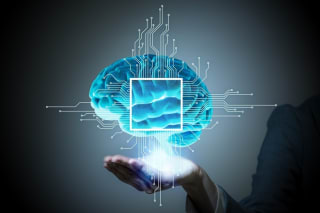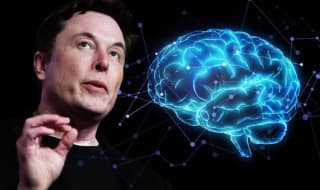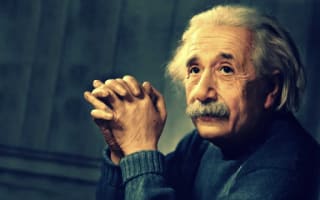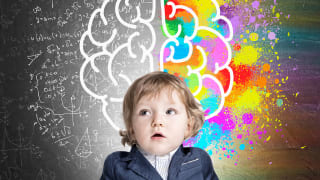
Is intelligence the same as IQ?
If you've ever wondered, let me say no. Intelligence and IQ are not the same.
Intelligence and IQ are 2 very different concepts.
In a nutshell:
- Intelligence is a characteristic that some living beings present, and it implies comprehension, learning, creativity, decision-making, and self-knowledge capacities, among others; while
- the IQ (intellectual quotient) is the numerical result of the application of a standardized test that aims to measure intelligence.
For a better understanding of the difference between these 2 concepts, I will explain each of them separately.
1. What is intelligence?
There are many ways to define what intelligence means. One of the most complete is the following:
It is a very general mental capacity that, among other things, involves the ability to reason, plan, solve problems, think abstractly, understand complex ideas, learn quickly, and learn from experience. It is not simply book learning, limited academic ability, or test-taking intelligence. Rather, it reflects a broader and deeper ability to understand our environment: "understand," "make sense" of things, or "discover" what to do. Opinion in the Wall Street Journal signed by 52 researchers (1994)
In other words, intelligence implies certain capacities that are associated with the analysis, reasoning, learning and understanding of how people or things work, and in general the world.
When is a person intelligent?
Commonly a person is classified as intelligent when he possesses certain logical-mathematical abilities. While it is correct, there are also other abilities that denote intelligence.
Throughout your life, in school, university or anywhere else, I am sure that you have met people who are like the following:
- They learn mathematics very easily and it seems that they study little or nothing, but they always do very well.
- They play instruments very easily and give the impression of being born for it.
- They interact and communicate excellently, as well as getting along with everyone.
- They always have a solution for everything and are never discouraged.
- They do very well in dance workshops, and they make it look very simple.
Each of these people excel in a different area, and they have different abilities.
Which leads us to question how is the intelligence measured for people with great skills associated with communication, dance, art, music, etc.

Intelligence has traditionally been defined as a mental ability that includes a set of distinct skills.
Over time, different ways of defining intelligence have emerged. One that stands out for its popularity is the so-called: “Theory of multiple intelligences”, studied by Howard Gardner and characterized by 2 premises:
- The concept of intelligence is not limited.
- There are different types of intelligence and each of them is autonomous enough to be considered as a separate intelligence.
Human beings possess a range of capabilities and potentials -multiple intelligences- that can be used in many productive ways, both together and separately. And the knowledge of the multiple intelligences offers the possibility of being able to deploy with maximum flexibility and efficiency in the performance of the different functions defined by each society. Howard Gardner
Based on the above, having one type of intelligence does not necessarily imply standing out in others.
So it is wrong to say that an individual who is very good at chess is more or less intelligent than someone who plays the violin very well. They are both smart in their own way.
What are the types of multiple intelligences?
As described by Howard Gardner and his team at Harvard University, there are 12 types of multiple intelligence.

|
Linguistic-Verbal IntelligenceAbility to use language effectively. |

|
Logical-Mathematical IntelligenceMastery of language and communication. |

|
Visual-spatial intelligenceAbility to reason in 3 dimensions. |

|
Musical-auditory intelligenceAbility to appreciate, transform and express musical forms. |

|
Body-Kinesthetic IntelligenceAbility to manage strength, coordination, balance, body expression. |

|
Interpersonal intelligenceAbility to empathize with others. |

|
Intrapersonal intelligenceCapacity that allows us to know ourselves through self-analysis. |

|
Naturalistic IntelligenceAbility to categorize elements of the environment. |

|
Emotional intelligenceAbility of individuals to recognize their own emotions and those of others. |
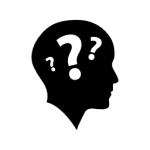
|
Existential IntelligenceAbility to delve into existential aspects. |

|
Creative intelligenceAbility to create something new that makes a contribution to society. |

|
Collaborative IntelligenceCapacity that allows to face challenges or solve problems collectively. |
Gardner's classification gives us a much broader picture of what intelligence means.
Gardner and his team's approach to defining intelligence contributed a lot to educational models, as:
Provides a conceptual basis for the categorization and detection of skills at an early age in order to focus efforts on enhancing these capabilities and generating quality human talent.

2. What is IQ?
The IQ represents an estimate of intelligence, limited to logical mathematical reasoning. It is obtained as a result of the application of an standardized intelligence test.
How is IQ calculated?
The following factors intervene to calculate the IQ:
| Factor | Description |
|---|---|
| Score | It is obtained by solving an intelligence test. |
| Chronological age | It is the age of the individual who solves the test. |
| Mental age | Age assigned to the subject according to the score obtained when solving the test. |
| Quotient | It is the division of mental age by chronological age. |
For example:
If a 14-year-old takes an IQ test and his score matches the average IQ that 17-year-olds have when solving the same test, then:
- His chronological age is 14.
- His mental age would be 17.
- And your IQ would be 17/14 = 1.21 (equivalent to an IQ of 121).
If you are curious, you can take an online test and know your results immediately.
Do you dare to discover your IQ today? 😉.
ONLINE INTELLECTUAL COEFFICIENT TEST

What is your IQ?

